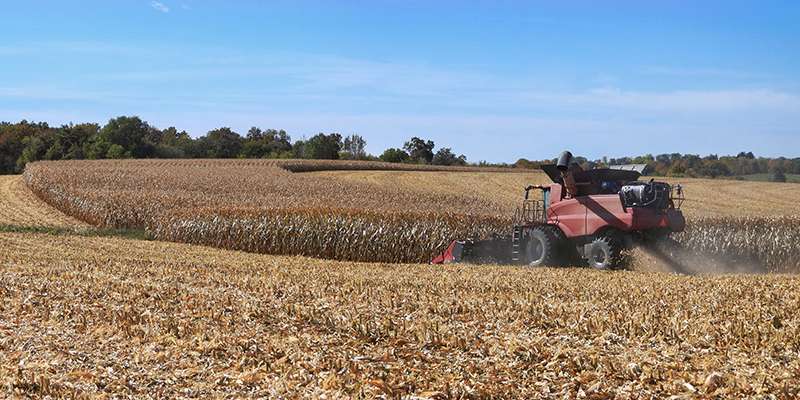BankIowa
Updated 9:18 AM CDT, Fri July 12, 2024
Published Under: Ag

If you’re in the agricultural world, you know just how important farming machinery is for a successful operation. However, managing the costs associated with these essential tools can sometimes be a challenge. Whether you buy used equipment, create maintenance schedules, share equipment with your neighboring farmers, or hire out the work, there are many solutions to help manage your farming operation properly.
Buying Used Equipment
One of the greatest advantages to buying used farm equipment is the money you save. With the increased financial flexibility, you can focus your efforts on other parts of the operation that need updating. If you are a first-time farmer, buying used equipment will help you get your operation up and running, while also having a low initial investment, especially when you’re looking to buy multiple pieces of equipment. Buying any equipment begins with research. Make, model, features, controls, average selling price – familiarize yourself with how the equipment should operate, how it fits within your budget, and then evaluate the used equipment based on your needs. Are the electronics up-to-date or obsolete? Does it have more “bells and whistles” than you need? Make sure you’re buying machinery for the features you’ll use, not those which will only add to the price of the purchase.
Whether buying from a dealer, private seller, or at auction, always thoroughly inspect the machine you're interested in and get service records if available. If buying from a private seller or at auction, work with a trusted mechanic or equipment expert to inspect the machinery before buying. If buying through a dealer, most will do a multi-point inspection of used equipment before it’s advertised and may even offer a warranty, which can give you some peace of mind. Either way, evaluate the risks and move forward, confident in your research.
Creating Maintenance Schedules
Even though some problems with equipment can’t be prevented, scheduling routine maintenance and calibration can help keep those problems to a minimum, extend the lifespan of the equipment, and help ensure the equipment is safe to operate. Routine maintenance should be guided by the equipment’s owner manual and manufacturer specifications. The schedule should be based on the hours the equipment was used. Regular maintenance with recordkeeping can also help improve resale value of the equipment down the road.
Equipment Sharing
Farmers have been sharing equipment for centuries and it can have the greatest, positive impact on you and other farmers around you. When borrowing machinery, be aware of the benefits as well as the drawbacks and write up an agreement, if necessary, on how the equipment will be used and the condition when returned. No one wants to have a rift with a neighboring farmer over shared equipment. Be sure both “sync” work schedules so there are no misunderstandings.
A good option may be to contract out the work rather than buying the equipment. This is common and has some real advantages. The contractor owns, operates and maintains the machinery, so there are no maintenance costs on your end. Plus, in most instances, hiring a contractor is tax-deductible for business purposes.* A disadvantage is that the contractor may be booked and not available exactly when you need them.
Of course, you can rent the equipment and do the work yourself, ensuring the work is done exactly how you want. This is dependent on the size of your operation and equipment availability.
All of these equipment sharing options comes down to the numbers. Calculate the costs of sharing, hiring, or renting equipment over time versus buying or leasing. You will determine the best solution based on your budget and needs.
By implementing these cost-saving strategies, you’ll be able to manage your farming machinery expenses like a pro! Find the right balance of getting a great deal on equipment but also obtaining the latest and greatest product. By making smart purchasing decisions, maintaining your machinery, and exploring alternative options like equipment sharing, you’ll be able to keep operational costs under control. If you’re looking to buy, lease, or gain more information on machinery financing, contact a BankIowa Ag lender today!
*Consult your tax advisor on tax deductibility.
Resources:

Comments